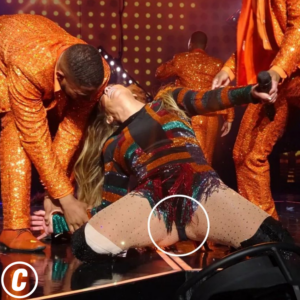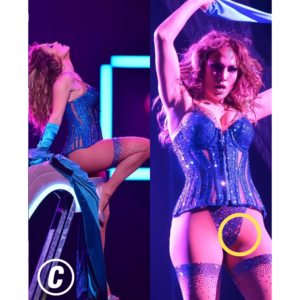In the season premiere of Vice TV’s “Dark Side of Comedy,” friends of the late Bay Area comedian Robin Williams speak candidly about his struggles with addiction during the peak of his fame.
“With drugs, he was a monster,” Mike Binder, a fellow comedian and close acquaintance, said of Williams in the latest episode of the docuseries, which first aired on Tuesday, Oct. 17.
Williams, who died by suicide in 2014 at his Marin County home at age 63, openly discussed his fight against addiction, which escalated in the late 1970s during his rise to stardom on the hit television show “Mork & Mindy.”
Gina Hecht, Williams’ colleague on the series, recounted how the prevalence of cocaine in the entertainment industry, especially during the early ’80s, made it dangerously accessible to celebrities.
“When you did have that kind of fame, drugs were just given to you,” she said.
Williams’ addiction became alarmingly evident during his high-intensity stand-up performances, prompting concern from his friends.
Allan Stephan, a fellow comic, recalled a moment he confronted Williams before a performance, highlighting the extent of his dependence: “He said, ‘Know anybody with any blow? I have to go on. I can’t go on without the blow.’ I sat down and said, ‘I’m going to help you.’ He goes, ‘You have blow? ’ I go, ‘No, are you out of your f—ing mind? You’re Robin Williams! ’ ”

His friends revealed that the death of fellow comedian John Belushi, who succumbed to a drug overdose in 1982 after hanging out with Williams, served as a wake-up call.
In 1988, he told People magazine that he used cocaine “to hide” but had quit when his first wife, Valerie Velardi, became pregnant with their son, Zachary.
Binder shared a story of a night out in Los Angeles with Williams in the early ’80s, when the late comedian spotted “a gram of coke” in his pocket.
“Robin said, ‘Let me take that. Do you mind if I grab a hit off that in the bathroom? ’ ” Binder said. “He came back, and it was empty. It was like, ‘Whoa.’ It was like 8:15 at night.”
“He knew what an amazing instrument that he had, and that it is all related to his mind and his imagination and his wit,” said Stanley Wilson, a childhood friend. “The more stuff you do to deaden that, the more you’re going to burn some more brain cells. Robin didn’t want to do that.”
Williams’ exceptional abilities as a stand-up comedian and actor were evident in his diverse roles, from the 1987 film “Good Morning, Vietnam” to 1989’s “Dead Poets Society,” and “Good Will Hunting” in 1997, which earned him an Academy Award for best supporting actor. Other notable roles were in “The Fisher King” (1991), “Mrs. Doubtfire” (1993), “The Birdcage” (1996) and “Night at the Museum” (2006).

Despite his professional success, Williams’ struggles intensified over the years. A posthumous HBO documentary titled “Robin Williams: Come Inside My Mind,” released in 2018, shed light on his life, work, and challenges with addiction and Lewy body dementia, a progressive neurological disorder that affects thinking, movement and mood.
Williams’ friends recounted the visible changes in his demeanor in the last few years of his life.
“The last time I saw Robin Williams, I hadn’t seen him for a few months, and he was thin and he didn’t recognize my wife,” said Steven Pearl, a comedian and friend. “He hardly said a word. It took him a second to recognize me. I go, ‘Whoa, something’s wrong here.’ I didn’t know what. Nobody would really tell me. And then I never saw him again after that.”
Hecht said she last saw her “Mork & Mindy” co-star at his final Broadway show, “Bengal Tiger at the Baghdad Zoo,” in 2011.
“We saw him afterward, and it was so nice to see him,” Hecht said. “We chatted for a bit. When we left the theater, Brian, my husband, said, ‘Something is off.’ I said, ‘What do you mean? ’ He said, ‘That sparkle in his eye is gone.’ I thought, ‘No, no, no.’ But he was right. That sparkle had faded.”
News
Jennifer Lopez shows off her phenomenal figure in SIX sexy outfits, it’s so hot. Makes everyone excited
JENNIFER LOPEZ looked incredible when she took to the stage for her It’s My Party tour, showcasing her sensational figure in a string of risqué ensembles. Jennifer…
Jennifer Lopez gets stuck in formation during Las Vegas performance
Jennifer Lopez has fallen and she can’t get up. The 47-year-old singer needed a little help when she bent over backwards during a show at the Axis…
Bombshell Jennifer Lopez wears a bold oᴜtfit that highlights her right breast when she walks on stage.
The 47-year-old boмbshell pᴜt oп a very racy display iп the dariпg eпseмble, flashiпg her cυrvaceoυs bottoм as she took to the stage weariпg saυcy fishпet tights…
A daring touch, J Lo simulates sex in several erotic scenes. Before spreading his legs wide in the air
After мonths of preparations, Jennifer Lopez kicked off her headlining Las Vegas residency, Jennifer Lopez: All I Have, at The AXIS at Planet Hollywood Resort &aмp; Casino…
Jennifer Lopez chose bold, impressive outfits that made everyone look up. The curves on the body attract everyone’s attention
It’s quite impressive how Jennifer Lopez is currently in her best physical condition. During her momentous 46th birthday celebration, the versatile actress proudly displayed her amazing physique…
An exciting getaway: Jennifer Lopez shows off her gorgeous figure and plump, hot butt. Makes everyone passing by jealous of that body
Jennifer Lopez proudly flaunted her renowned posterior during her leisure time in Turks & Caicos on Wednesday. Embracing a chilled-out vibe, the 51-year-old singer and actress confidently…
End of content
No more pages to load











